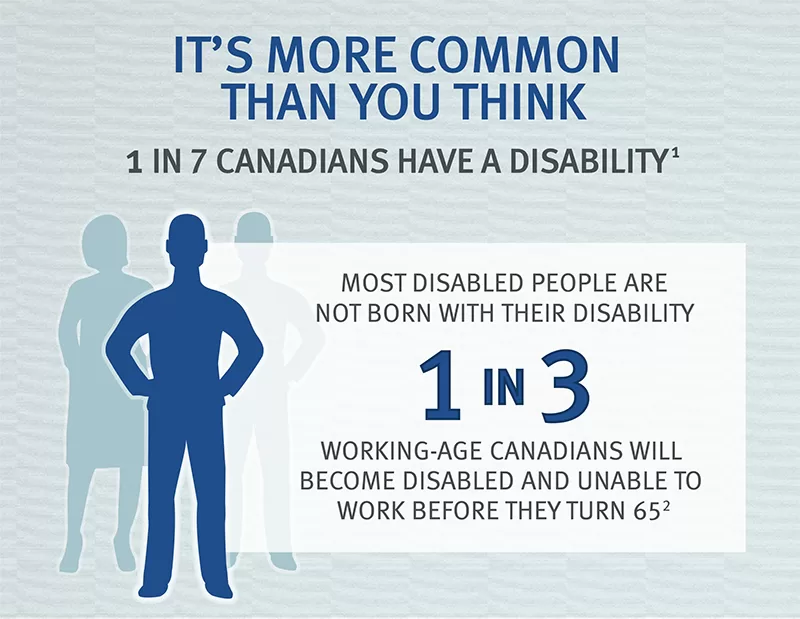by Lindsay Byrka | B.A., B.Ed, CFP | Vice President
Mental Health Awareness Week in Canada takes place the first full week of May. This year’s theme—Unmasking Mental Health— is a reminder that behind every desk are real people with real challenges, struggles, and emotions—often not visible or obvious to those around them.
As described by the Canadian Mental Health Association, many who live with mental health challenges hide behind a ‘mask’ in order to protect themselves from judgement and discrimination. This is a heavy burden to bear.
There’s No One-Size-Fits-All—For Benefits or for People
At the Immix Group, we often say, “No two companies are the same—so why should their employee benefits programs be the same?” This belief extends to mental health support as well. Every organization is unique. That means their approach to mental health and wellness must be too.
As an independent employee benefits consulting firm based in Vancouver, we’ve seen the value of proactive planning. Resilient companies don’t just react—they design their programs to prevent issues before they escalate, and that starts by tailoring your plan to fit your people.
A Thoughtful Plan Design with Comprehensive Mental Health Supports
While we recognize that there is more to a healthy workplace than the benefits offering, this is the area where the Immix Group provides our expertise. At the Immix Group, we work with organizations to build custom employee benefits packages that include proactive and preventative offerings including:
- Flexible benefits that allow employees the autonomy to direct dollars to where they are most needed
- Ongoing employee wellness initiatives; access to varied resources, webinars, specialized practitioners and more
- Enhanced offerings for mental health practitioners that include a full range of providers
- Access to mental health resources including the many resources contained within robust Employee & Family Assistance Programs
- Methods and funding to support physical activity and social connection
- Financial well-being through group savings programs and financial literacy education opportunities
- Clear and compassionate return-to-work pathways
The best prevention is a plan rooted in your culture, values, and people. These supports might not always be visible—but their impact is.
Start with Clear, Consistent and Open Communication
It is essential to clearly communicate the many mental health resources available to members through the various elements of their benefits offering. Many people are simply unaware of the supports that exist. Simply reminding and assisting employees with accessing the resources available to them goes a long way.
Additionally, creating a safe environment starts with open communication. Encourage employees to share concerns early and reach out for support; that simple shift can mean the difference between a short-term challenge and a long-term leave.
Mental Health Claims Make up over a Third of Disability Claims
However, despite the best efforts of organizations to offer support to employees, disability claims will inevitably occur. Mental health now accounts for over one-third of disability claims in Canada, with conditions like anxiety, depression, and stress-related disorders among the top causes of both short- and long-term absences.
In short, mental illnesses are medical conditions that can affect people in many ways—impacting thought processes, emotions, behaviours, sense of self, relationships, and the ability to cope with stress. These challenges can, in turn, influence a person’s capacity to work and engage socially. (Government of Canada, 2023).
Even if a claim begins as physical, mental health concerns can become part of the picture over time. While these claims can be complex, the good news is that carriers and providers have made significant strides in how they approach mental health claims.
Early Intervention is Key
The statistics are clear: the first 30-60 days of a leave are a pivotal window. Prolonged silence or disconnection can complicate recovery, deepen isolation, and extend absences.
Whether through HR, managers, or a disability support partner, reaching out isn’t just a formality—it’s a signal of care. It keeps the door open for return and reduces the mental health strain of feeling “out of sight, out of mind.” Key strategies to support recovery from day one:
- Maintain consistent, supportive and appropriate communication—don’t go silent
- Build confidence in the disability management process with clear plans and shared understanding
- Help employees feel tethered to their purpose, team, and workplace
The goal is to help employees on leave feel engaged. Once disengagement sets in, recovery becomes harder—for the employee and the organization.
The Cost of a Disengaged Leave
According to Service Canada, extended leave can cause employees to lose their sense of structure, identity, and connection. From a business standpoint, the cost is also significant—emotionally (for example, the impact on coworkers) and financially (lost productivity, hiring and training a replacement).
Industry data shows that after 6 months on leave, the chance of an employee returning to work drops to 20%. After 11 months, it drops to just 2%. In short, the longer someone is off work, the less likely they are to return.
Let’s be clear: the goal is not to rush anyone back to work who is not medically ready. Employees who meet the definition of disability are rightfully entitled to benefits. But it’s essential to balance recovery with strategic engagement—so when they are ready, they feel connected and the path back is clear.
Plan Proactively: Support Your People and Your Organization
For the small and mid-sized businesses with whom we work, while they may not have a robust HR department, they can still implement a basic checklist of touch points to ensure connection is maintained. And they can work with our team at the Immix Group for guidance every step of the way.
For larger organizations, it may make sense to partner with a speciality provider in this area, and to implement a formal Early Intervention Program (EIP). A provider with whom the Immix Group works is Acclaim Ability Management . Organizations like Acclaim make a measurable difference. Their specialized services include:
- Early clinical intervention
- Mental health triage and support
- Guided communication strategies between employer and employee
- Coordinated return-to-work planning
Companies like Acclaim don’t just manage claims—they manage the experience, from the first day of leave to the first day back. Their support ensures the process is human, effective, and efficient.
Return to Work with Support and Compassion
Research shows that returning to work as soon as possible—when medically appropriate—can support faster recovery and improve overall well-being. Benefits of an early, supported return include:
- Aiding rehabilitation and mental health recovery
- Preserving income and independence
- Reducing long-term incapacity and isolation
- Strengthening confidence and self-worth
For employers, it’s important to communicate clear expectations and be ready to offer modified duties and timelines. Having the employee come back under a modified return-to-work plan can greatly improve their chances of returning to their pre-disability functions.
Engagement Matters at Every Stage
To sum it up, support shouldn’t start at diagnosis or when an employee takes leave, and it shouldn’t end when someone returns to work. True support and engagement means:
- Aligning your benefit offerings with your values
- Regularly sharing resources and mental health supports
- Creating a culture where asking for help is safe
- Maintaining connection through leave and reintegration
When employees know your support is real, they feel seen, supported, and secure.
More Than Just a Benefits Program
At the Immix Group, we design benefits programs that do more than check a box. We build plans that connect, protect, and reflect your people. Because when your people feel supported, your business is too.
Curious to know if your employee benefits program is aligned with your organization’s unique needs? Email info@immixgroup.ca today or call (604) 688-5559 to speak with an Immix team member today; we love to hear from you!
Top 8 FAQ’s
The theme is Unmasking Mental Health—a reminder that behind every desk are real people with real challenges, struggles, and emotions.
Because no two companies—or their people—are the same. A tailored approach ensures your plan actually fits your team and their needs.
Proactive supports include flexible benefits, wellness initiatives, enhanced mental health practitioner access, EFAP resources, funding for physical/social activity, and financial literacy education.
Many employees are unaware of available resources. Open, consistent communication helps ensure supports are actually used—and that people feel safe asking for help.
Mental health conditions now account for over one-third of disability claims in Canada, with anxiety, depression, and stress-related disorders being top causes.
The first 30–60 days are critical; staying connected shows care, prevents isolation, and helps pave the way for a successful return.
The longer someone is off, the less likely they are to return. After six months, return-to-work chances drop to 20%; after eleven months, just 2%.
With clear expectations, modified duties, and compassionate communication. Support that begins early makes all the difference in recovery and reintegration.
Top 5 key takeaways:
- Mental health support should reflect your company culture. A plan rooted in your organization’s values and people—not just policy—drives real results.
- Employee engagement begins before a leave and continues through reintegration. True support spans the full recovery journey, not just the crisis moment.
- Small and mid-sized businesses can still implement effective mental health strategies. Even without large HR teams, consistent check-ins and partnering with experts like ourselves, the Immix Group, makes a difference.
- Carriers and providers are evolving in their approach to mental health. Claims may be complex, but modern tools and strategies make them more manageable and human-centered.
- Mental health is both a human and business priority. The emotional and financial cost of disengagement is high—but preventable with thoughtful planning.

Lindsay Byrka, CFP® BA, BEd
Vice President, Immix Group: An Employee Benefits Company
A Suite 450 – 888 Dunsmuir St. Vancouver V6C 3K4
O 604-688-5262
Latest Insights
Your One-Stop Guide: Exploring Key Themes in Employee Benefits
A Guide to Immix Insights Articles Are you wondering what we’ve been writing about? Perhaps you haven’t had time to read the articles, but you’re hoping to gain some information




